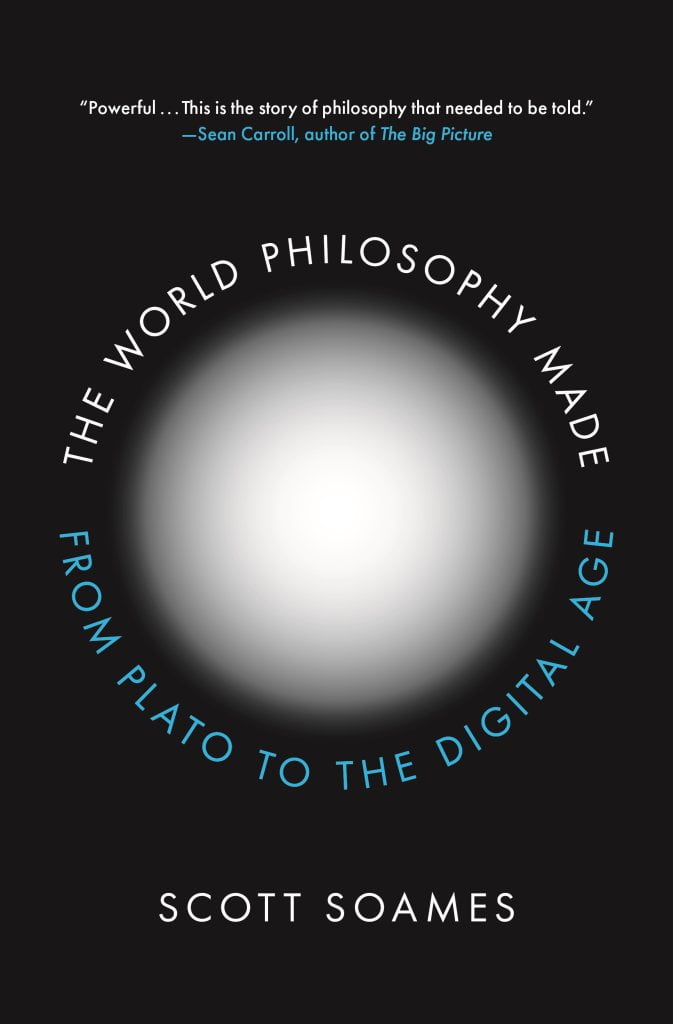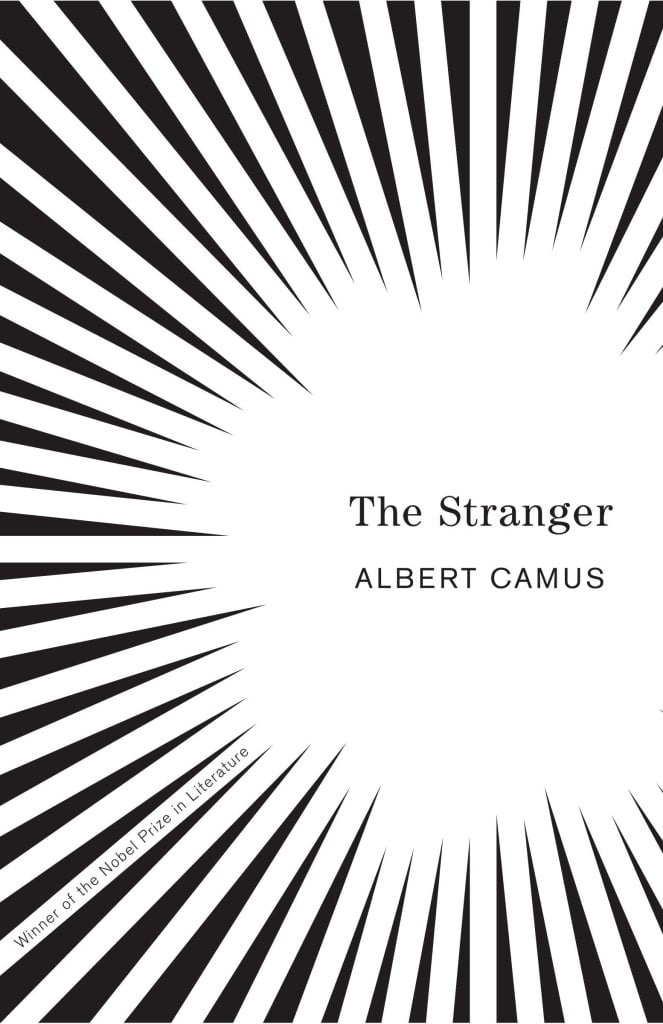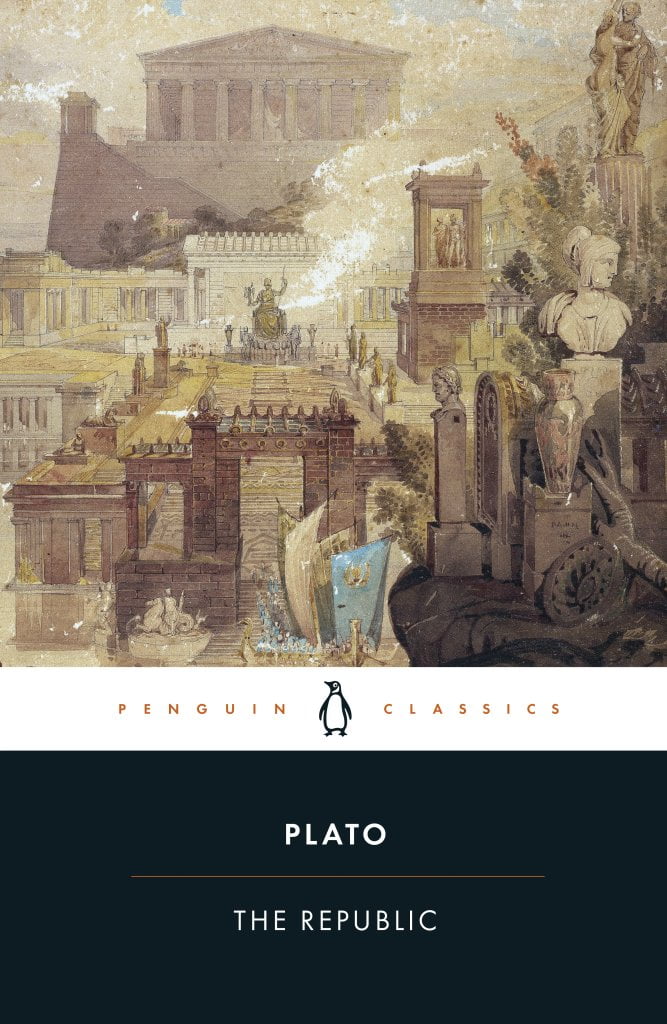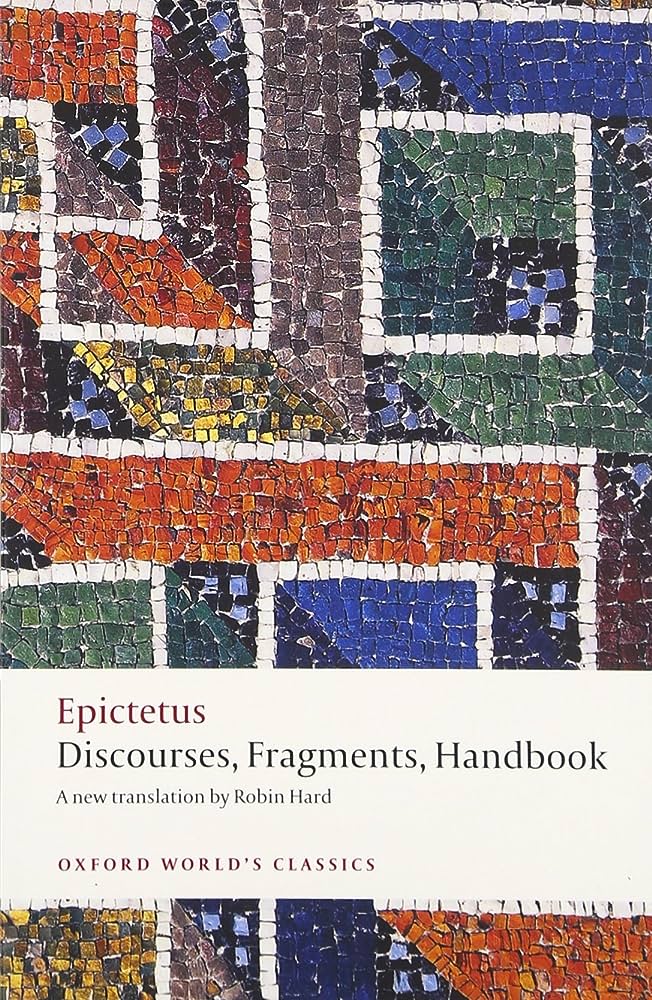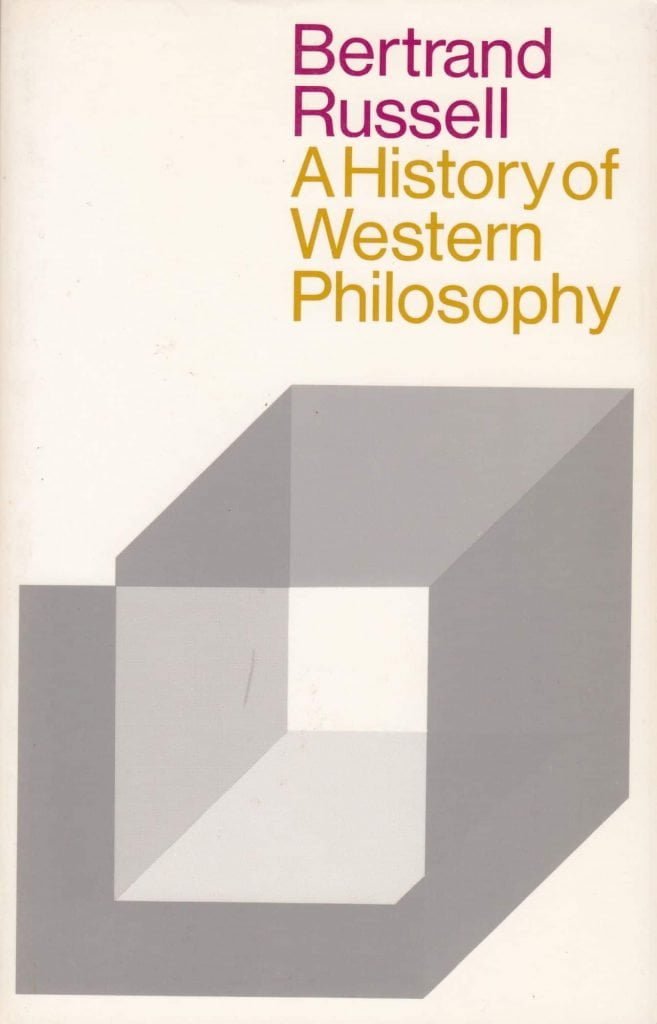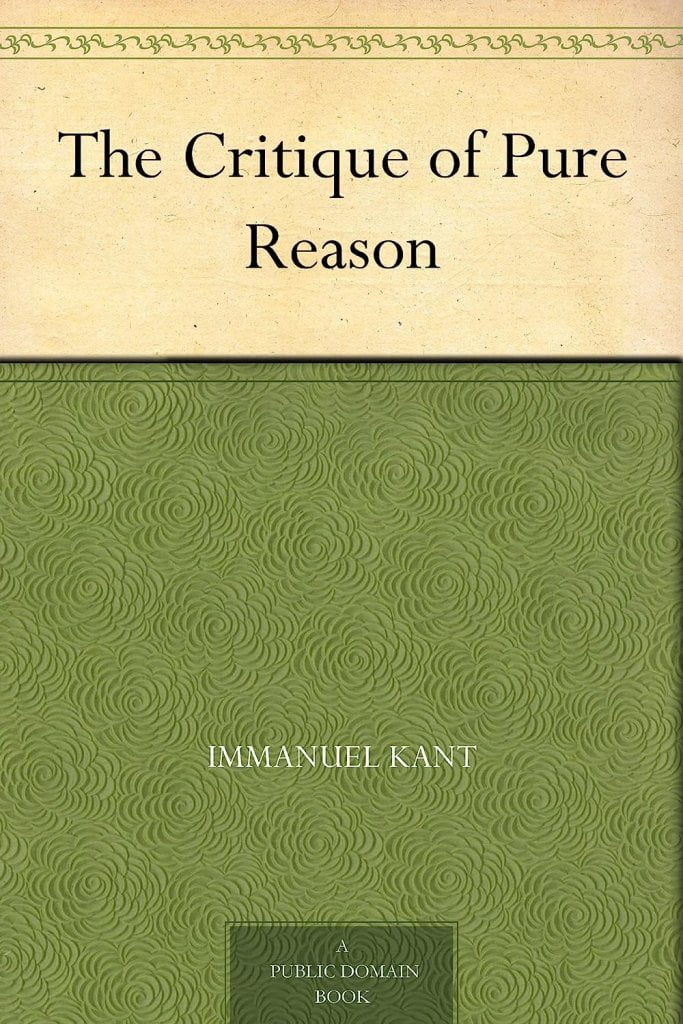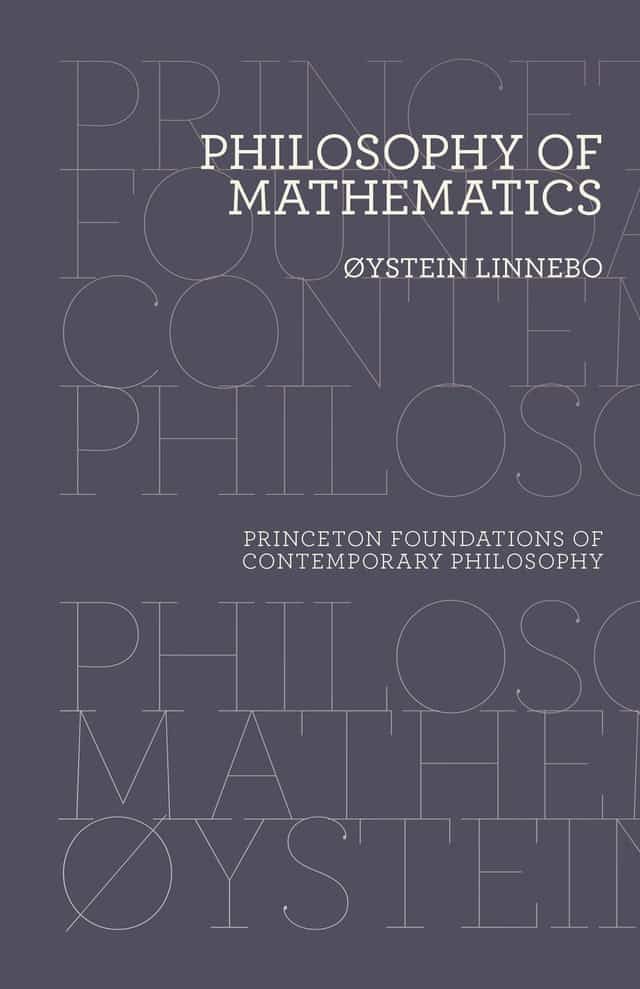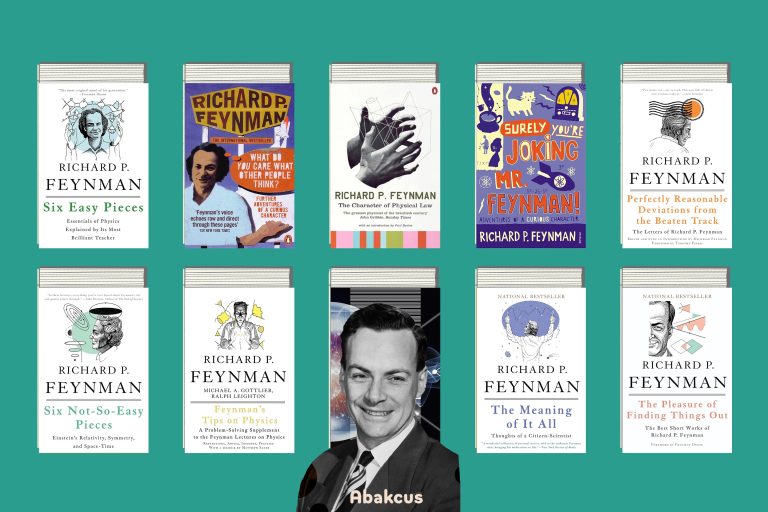To comprehend philosophy’s profound depth and diversity, one must engage with the minds that have shaped this field – the philosophers themselves. The best way to do this is through their written world philosophy books.
Through these great world philosophy books, we not only gain access to the intellects and insights of these philosophers but also witness the evolution of philosophical thought across different cultures and eras. It’s a journey into understanding the human condition, society, and existence through the lens of numerous philosophical perspectives.
Philosophical investigation is indeed the root of all human knowledge. It is the foundation upon which we build our understanding of the world, ourselves, and our place. Through the ages, philosophy has been the bedrock of developing new concepts, reinterpreting old truths, and reconceptualizing fundamental questions.
World Philosophy Books Provide a Gateway Into the Minds
For over two millennia, philosophy has not only progressed but has been a pivotal driving force for human progress. This intellectual endeavor, bold in its range and profound in its implications, has been captured in numerous world philosophy books that provide a gateway into the minds of the world’s most influential thinkers.
In short, we live in a world philosophy has made. Every law, principle, and norm that governs our society has its roots in philosophical thought. From the democratic institutions we uphold to the scientific methods we employ, the underpinnings are undeniably philosophical.
Even our values and beliefs, consciously or unconsciously, are shaped by the philosophical concepts inscribed in the world philosophy books we read. Thus, world philosophy books are not merely collections of abstract ideas but blueprints of our world.
My Favorite World Philosophy Books
Below, I have curated my favorite world philosophy books. These are not just simple philosophy books but rather a treasure trove of wisdom and insights, each offering a unique perspective on philosophical thought.
Each of these world philosophy books is essential for anyone wishing to delve deeply into the wisdom and insights of philosophical thought. They offer knowledge and a means of interpreting and understanding the world around us.

When I first picked up Physics and Philosophy, I expected a deep-dive into hardcore physics, paired with some philosophical musings. What I didn’t expect was a genre-defying gem that reads as much like a memoir as it does an intellectual exploration. If you’re looking for the best physics book that marries science, history, and personal narratives, buckle in because this one will leave you awestruck.
This masterpiece is far more than formulas and abstractions. It’s Werner Heisenberg narrating his life and times in the most vivid, surprising, and downright witty way imaginable. Think of it as an “autobiography for thinkers”–a book where you not only follow Heisenberg’s groundbreaking contributions to quantum physics (hello, Uncertainty Principle!) but also glimpse the human spirit behind the genius.
A Humanized Portrait of a Quantum Pioneer
Ever wonder what it was like for Heisenberg to see history unfold and create it at the same time? Spoiler alert: it’s as mind-blowing as you’d imagine. This isn’t a dry recounting of particle physics or long lecture-like prose. Instead, Heisenberg shares episodes of his life intertwined with landmark discoveries—not in a technically exhaustive way but via snippets that are easy for laypeople to digest without losing their charm for physics buffs.
More than anything, the book provides a tender, humanized view of the intellectual icons we’ve grown up idolizing. From debates with Niels Bohr to heartfelt moments of camaraderie with the likes of Einstein and Pauli, you almost feel like you’re at the table listening to their conversations. Heisenberg doesn’t just describe these luminaries; he brings them to life, complete with quirks and deep reflections.
One of my favorite anecdotes? Heisenberg recounting epic debates at Niels Bohr’s home that lasted hours until someone fell ill from sheer exhaustion. And what did Mrs. Bohr do? She tucked the guy into bed with tea while Niels sat at his side, still explaining his theories. Moments like this had me laughing out loud, imagining the chaos of genius minds colliding.
Beyond Physics and Into Life
Some books take you back to a different era. This is one of those. It beautifully captures the zeitgeist of pre- and post-World War eras, highlighting a world where intellectual curiosity reigned supreme. Back then, it wasn’t unusual to see young minds discussing philosophy, playing music, or inventing entirely new fields of science over a cup of tea.
Heisenberg’s own life reflects this multidimensionality. Beyond physics, he loved music (an amazing piano player!) and even worked as a lumberjack to ease financial burdens on his family. He embodies the idea that pioneers are more than their work, and this spirit fills every page.
Accessible Yet Thought-Provoking
Now, you might be wondering, “Do I need a Ph.D. in physics to understand this book?” Absolutely not! While Heisenberg sprinkles in scientific concepts, he masterfully avoids alienating readers. You don’t need to know the ins and outs of quantum physics to grasp the enormity of the ideas shared. Whether you’re a seasoned physics enthusiast or simply a curious mind, this book delivers beautifully.
The best part? Heisenberg’s writing is incredibly engaging. I’d even go so far as to say it’s funny in all the right places. He has a way of crafting complex ideas into digestible nuggets while keeping you entertained (seriously, who knew the man behind matrix mechanics had such a sharp sense of humor?).
Why Physics and Philosophy Could Be the Best Physics Book to Add to Your Shelf
If you enjoy books that break molds and transcend expectations, Physics and Philosophy needs to be at the top of your list. It’s a book that teaches, inspires, and surprises, offering both intellectual stimulation and heartfelt storytelling.
Whether you’re intrigued by quantum mechanics, fascinated by the great minds who shaped it, or simply love books that go beyond academia to capture the essence of a person, this is the one for you.
To sum it up, Heisenberg doesn’t just talk about physics or philosophy; he weaves them into the tapestry of life itself. And as you read this book, you’ll find yourself marveling—not only at the discoveries he made but at the man he was.
Read this book, and you’ll understand the brilliance of both Heisenberg and his quantum revolution. You won’t just learn about uncertainty; you’ll find certainty in one thing—I guarantee you’ll love every minute of it.
If you’re still hunting for the best physics book, congrats, your search ends here. Physics and Philosophy is calling your name. Happy reading!
Can we talk about how much we love science and philosophy? Imagine indulging in the best of both worlds while unraveling the intricate dance between human experience and scientific inquiry. That’s exactly where The Blind Spot shines. Written by two physicists and a philosopher-cognitive scientist team, this book tackles some BIG questions about our seemingly fractured understanding of reality. Trust me, by the time you’re done with it, you’ll feel like a curious kid on Christmas morning, blown away by what’s under the wrapping paper.
Here’s What Hooked Me
You know that feeling of staring at your phone or computer for hours, yet still feeling disconnected and restless? (Yeah, we’ve all been there.) The Blind Spot intricately connects this modern malaise to how our cultural and scientific systems evolved. It argues that science’s obsession with measuring and theorizing about the external world has left our first-person, lived experiences in the shadows. Why does this matter? Because, as the authors put it, neglecting this inner world could be one of the reasons we feel so incomplete in today’s hyper-rational, overly quantitative society.
The premise traces its roots back to thinkers like Galileo, Descartes, and Bacon, who, in trying to objectively define the world, inadvertently split it into two camps: mind (qualitative experience) and matter (quantitative measurement). You’d think this division would be super helpful, right? Well, it was. Concepts like temperature, time, and the crazy equations behind quantum mechanics came out of it. But it also created what the authors call the “Blind Spot” by devaluing direct human experience. (Think of it as science accidentally ghosting us.)
The Joy (and Gripe) of Reading This
To keep things balanced, The Blind Spot is very much written by scientists, for scientists, and readers who appreciate science-y rabbit holes. There are moments when the authors nerd out with technical explanations and light math (yep, don’t say I didn’t warn you). But for the most part, they manage to present those ideas in a way that feels essential rather than overwhelming. Even for lay readers like me, I never felt excluded from the conversation. It’s kind of like showing up to a party hosted by the science nerds in school, where you’re pleasantly surprised by how engaging and fun they are.
One particularly fun chapter nudges readers to try a small awareness exercise. It prompts you to reflect on how your sensory experiences shape your perception of the world. It’s like hitting the “reset” button on your brain. You’ll feel all sorts of “ah-ha!” moments as they break down abstract ideas into tangible observations about “hot vs. cold” or “clock time vs. felt time.”
Why It Matters (and Why You Should Care)
With all the buzz around AI, climate change, and digital transformation, this book hits different. The authors aren’t anti-science (far from it), but they are deeply concerned about science becoming too detached from human reality. They call out “scientific triumphalism”—essentially the overconfidence that everything we value can be broken down into formulas and solved with enough data points. It’s not just damaging for society; they argue it also risks undermining science itself. The book is a gentle (but firm) nudge to stop putting blind faith in cold, mechanical systems and start rekindling a deeper connection with our place in the greater world.
The suggested solutions are equally inspiring. By integrating disciplines like systems research, neurophenomenology (fancy way of exploring consciousness), and the history of science, the authors believe we can bridge that chasm between scientific abstraction and subjective human experience. Yes, challenges exist (hello, underfunded academia and profit-hungry grant systems), but the book’s optimism is infectious. Somewhere within those vast, rigid systems of science, there’s still space for creativity, curiosity, and critical thinking to flourish. And if you care about complex issues like climate change, pandemics, or the biodiversity crisis, this book offers a fresh lens through which to better understand and approach them.
The Takeaway
At its heart, The Blind Spot is a passionate call to rediscover and revalue the elusive, messy, beautiful thing that we call human experience. It’s not just a win for science enthusiasts, but also for anyone who has stared up at the stars (or a cup of coffee!) and wondered, “Where do I fit into all of this?”
Whether you’re an academic, a curious reader, or someone looking to challenge yourself with thought-provoking ideas, this book will leave you questioning and reflecting long after you turn the last page. Plus, it’s refreshing to read a scientific book that’s not afraid to be philosophical. Highly recommend it to anyone who feels called to understand not just how the world works—but why it feels the way it does too.
If books could give you a hug and a mind-blowing revelation at the same time, well, this one absolutely does. I truly believe the more people who read The Blind Spot, the better we’d all communicate, collaborate, and, y’know, feel more human.
The World Philosophy Made: From Plato to the Digital Age is a captivating book that takes you on a journey through time, exploring the profound impact philosophers have had on mathematics, science, society, and our understanding of ourselves.
Unlike dry philosophical texts of the past, ‘The World Philosophy Made‘ is a dynamic and engaging read. It unveils the fascinating connections between philosophy and various fields, from physics to economics, law to language. The chapters are so clear and comprehensive that even professors are likely to assign sections to their students. Dr. Soames’ in-depth discussions on physics, logic, and rationality are particularly noteworthy, and the book’s exploration of the digital age makes it relevant and accessible to modern readers.
Delve into the intricate web of ideas that philosophy has woven throughout history. Just as Descartes described philosophy as the roots, trunk, and branches of a tree, ‘The World Philosophy Made‘ reveals how philosophy is the foundation and catalyst for countless intellectual pursuits.
Don’t miss out on this impressive addition to your library. ‘The World Philosophy Made‘ is a must-read compendium that celebrates the profound contributions philosophy has made to our shared world.
Prepare yourself for a captivating and thought-provoking read that will make you question everything you thought you knew about life. Albert Camus’s “The Stranger” may seem deceptively simple, but its underlying depth will leave you astounded.
While many readers get hung up on the age-old question of life’s meaning, this book goes beyond that. It delves into the very essence of humanity itself. What does it truly mean to be human? As we follow Meursault’s trial, we witness how his perceived lack of remorse paints him as cold and inhuman. But is that really the case? Can one’s emotions be dictated by others’ expectations in certain situations?
“The Stranger” also serves as a powerful critique of how society dictates our lives. We are constantly told what is right, what it means to be human. These expectations are imposed upon us, and we in turn impose them upon others. In doing so, we justify our own choices while marginalizing those who don’t conform. By labeling Meursault as “inhuman,” others can validate their own way of life.
“The Stranger” leaves us with more questions than answers, but isn’t that the beauty of philosophy? It challenges us to think, to explore the complexities of existence. “The Stranger” is a captivating journey that will leave you pondering long after you turn the last page.
Discover Plato’s ideas of an ideal state and its rulers in his influential book, The Republic. Through engaging dialogues between Socrates, Plato’s brothers Adeimantus and Glaucon, and others, Plato unveils his vision of a just utopian society and the role of philosophers as rulers.
Step by step, Plato builds his ideal state, explores the education of its rulers, challenges traditional gender roles, and examines the place of art and poetry. While some of his ideas may seem far-fetched, many are thought-provoking, especially when considering imperfect societies.
Although I don’t agree with all of Plato’s arguments, I thoroughly enjoyed his insightful views. While his utopian state may be impractical, elements of his ideas can be seen in governments around the world. This timeless masterpiece, translated by Sir Desmond Lee, is a cornerstone of Western philosophy and fulfilled my long-held reading wish.
With its accessible language and helpful explanatory notes, I highly recommend it to anyone seeking intellectual enlightenment.
Discover the teachings of a stoic master – Epictetus – who experienced misfortune as a slave but emerged as a profound philosopher. In this captivating book, Discourses and Selected Writings, Epictetus’s lessons come to life through the direct and intense writing style of his student Arrian. Immerse yourself in the practice of philosophy as a way of life, and learn how to find contentment and happiness amidst external circumstances.
Epictetus, faithful to the stoic teachings, focuses on the individual’s free will and the correct use of impressions. By separating what we can control from what we cannot, and constantly reflecting on our values, we can free ourselves from torment and find inner peace. Epictetus challenges conventional notions of happiness, questioning the importance of external factors such as wealth, health, and social status. He reminds us that misfortune and death are natural parts of life, and it is futile to resist or fear them.
The essence of stoic teaching is to live fearlessly and without anxiety. This requires rigorous training of the will and an understanding of virtue and vice. Epictetus compares this training to that of athletes or craftsmen, emphasizing that it is a lifelong journey. Without this training, we remain slaves to material possessions, societal expectations, and futile struggles.
Comparing Epictetus to Marcus Aurelius, we see the struggles of a man of virtue who constantly reminds himself to live by stoic principles. Epictetus, on the other hand, penetrates our souls and exposes our inability to truly practice stoicism. He confronts us with our envy, jealousy, anger, and disappointed desires, forcing us to question our commitment to transforming our minds. As we reflect on our daily lives and the time we spend being controlled by negative emotions, stoicism appears as an ideal that is still far from our grasp.
Immerse yourself in the powerful teachings of Epictetus and embark on a journey towards inner peace and freedom from anxiety. Discourses and Selected Writings will challenge and inspire you to truly live as a stoic.
In Spinoza’s thought-provoking book, Ethics, he challenges our beliefs about God’s love and emotions. According to him, God is impartial and cannot be influenced by our feelings. However, he firmly believes in the existence of God as the ultimate source of everything.
Spinoza’s Ethics teaches us the importance of self-preservation through moderation and reason. He identifies anger, envy, sadness, and hatred as the only true evils in the world. But fear not, for love, peace, and kindness can overcome them. Spinoza emphasizes that true power lies in understanding, particularly understanding God, and that joy is the ultimate form of satisfaction.
While Spinoza’s Ethics may be challenging to follow with its use of mathematical proofs, it is not without its merits. Spinoza’s deductive approach allows for pinpointing the essence of things, even if it may not be adaptable in proving ethical principles. Interestingly, his critique of religious texts in the Theological-Political Treatise employs a simpler method of reasoning.
Delve into Spinoza’s world of ethics and discover a new way of thinking about God, human emotions, and the power of understanding.
Discover the captivating world of philosophy with Bertrand Russell’s monumental work, A History of Western Philosophy. This comprehensive book takes you on a journey through the major streams of philosophical thought, providing valuable insights into how the ideas of various philosophers are interconnected. Russell’s clear and accessible writing style sets him apart from other philosophers, making this book a refreshing read.
While discussing the historical importance of the notion of essence, Russell fearlessly shares his personal opinion, challenging commonly held beliefs. But don’t dismiss his opinions – Russell himself is one of the most influential philosophers of the Twentieth Century.
As you delve into this book, you’ll see the influence of the World War II era on later philosophical doctrines. Russell expertly weaves in the ethical positions and propaganda of the Allies and Nazis, giving you a deeper understanding of the context in which these ideas developed. Keep in mind, however, that more recent philosophical developments are not covered in this volume.
Although A History of Western Philosophy can be overwhelming at times, Russell’s guidance leads you through the philosophers from ancient Greece to World War II. As you progress, you’ll start to see common threads emerging, connecting the chapters and shaping the history of human thought.
It’s important to note that you won’t remember everything Russell conveys on your first read. This book is best suited for those who already have a general understanding of philosophy and want to delve deeper into its intricacies. It’s also a valuable resource for those who have explored the original works of philosophers and want to gain a better understanding of their place in Western Philosophy.
You can read A History of Western Philosophy on its own or in conjunction with The Great Philosophers, which draws much inspiration from Russell’s work. Whether you’re just starting your philosophical journey or have already immersed yourself in this fascinating field, A History of Western Philosophy is a must-read. Until another genius like Russell comes along to update it, this remains the ultimate guide to the ideas that shape modern Western thought.
The Critique of Pure Reason is a monumental work that has shaped the course of philosophy. It’s hard to say if Kant’s influence is due to his brilliance or his unique insight into the future of philosophy.
While the language can be challenging, it offers a precision that unlocks the essence of knowledge and experience. To navigate through this dense text, it’s recommended to have a companion book that breaks it down for you.
If you value understanding truth and knowledge, then delving into the original concepts and Kant’s language is worth the effort. The Critique of Pure Reason provides a solid foundation for grasping the complexities of modern philosophy in all its forms.
However, it’s important to note that while this work laid the groundwork for philosophy, it doesn’t match the thoroughness and precision of more recent thought. As philosophy has evolved, the focus has shifted to deeper understanding. Nonetheless, The Critique of Pure Reason remains an essential starting point to appreciate modern thought beyond abstract ideas and trivial debates.
Discover the captivating world of the philosophy of mathematics with Øystein Linnebo‘s groundbreaking book review. As I taught a special topics course on the history of mathematics, I couldn’t help but delve into the deep questions surrounding the nature of mathematics itself. What truly defines mathematics? Do mathematical objects like sets and numbers exist, and if so, in what form?
To my surprise, these philosophical questions had rarely been considered by my students. It was clear that these topics were not commonly explored in mathematics courses. Most students were preoccupied with grasping complex mathematical concepts, leaving little room for philosophical musings.
Given the scarcity of undergraduate-level textbooks on the philosophy of mathematics, Linnebo’s book is a breath of fresh air. It surpasses other introductory texts in sophistication while still being accessible to those new to the subject. Familiarity with philosophical reasoning and writing, as well as a background in logic, will enhance the reading experience.
Unlike other books on the subject, Linnebo’s comprehensive text goes beyond exploring the foundational schools of thought in the philosophy of mathematics. While formalism, logicism, and intuitionism are covered, Philosophy of Mathematics also delves into contemporary issues that have emerged in recent decades. It strikes a perfect balance between the historical and the modern, making it a valuable resource for anyone interested in the philosophy of mathematics.
Join Øystein Linnebo on a journey through the history, concepts, and debates that shape our understanding of mathematics. Whether you’re a mathematics major or a curious mind, this book will challenge your perception of the subject and leave you eager for more.
What philosophy books are worth reading?
Other those beautiful world philosophy books above, there are numerous philosophy books that are worth reading, each providing unique insights into the world of philosophical thought. A classic starting point is Plato’s “The Republic,” a foundational text in Western philosophy that grapples with questions of justice, the ideal society, and the nature of reality.
For an introduction to Eastern philosophy, Confucius’ “Analects” provides a window into ancient Chinese thought, exploring themes of ethics, family, and governance. Descartes’ “Meditations on First Philosophy” ignites a journey of doubt and discovery, laying the groundwork for modern Western philosophical thinking.
Each of these books and many others offer a unique perspective, enriching our understanding of philosophy and, in turn, the world we inhabit.
Which philosopher should I read first?
Deciding which philosopher to read first largely depends on your interests and the philosophical questions that intrigue you the most. However, a common starting point is Socrates, often considered the father of Western philosophy. Reading his works introduces you to the Socratic method, a form of argumentative dialogue which aims to stimulate critical thinking and expose the contradictions in one’s beliefs.
Plato, Socrates’ student, is another excellent starting point, particularly in his book “The Republic,” which explores justice and the ideal society. If you’re more intrigued by Eastern philosophy, Confucius could be your initial guides. Confucius’ “Analects” present insights into personal and governmental morality.
Remember, philosophy is a vast field with no strict sequence to follow. Start with the philosopher whose ideas resonate most, and continue your journey from there.
Are philosophy books worth it?
Absolutely, world philosophy books are more than worth the investment of time and thought. They offer a deeper understanding of the world and the human condition. Philosophy books illuminate the underlying principles and ideas that shape our society, morality, and individual perspectives.
Philosophy books challenge us to question, debate, and think critically, fostering intellectual growth and analytical thinking. Reading a philosophy book might not provide straightforward answers, but it will certainly equip you with the tools to formulate your interpretations and engage meaningfully with complex ideas.
Whether you’re drawn towards the metaphysical musings of Kant, the existentialist explorations of Sartre, — every philosophy book opens the door to a new realm of understanding. In essence, philosophy books are not just worth reading; they are valuable journeys into the depths of wisdom and insight.
Who is the most difficult philosopher to read?
The degree of difficulty in reading a philosopher often depends on one’s familiarity with philosophical concepts and the context of the philosopher’s work. However, Immanuel Kant is widely recognized as one of the most challenging philosophers to read.
His work, especially his magnum opus, the “Critique of Pure Reason,” is notorious for its dense and complex prose.
Kant delves deep into abstract concepts concerning epistemology, metaphysics, and aesthetics, often utilizing a complex terminology of his creation. His rigorous and systematic approach to philosophy can be overwhelming, requiring readers to invest significant time and effort to grasp his ideas fully.
Despite the challenges, wrestling with Kant’s work offers immense intellectual reward, as it forms the cornerstone of much modern philosophical thought. Thus, while Kant may be one of the more difficult philosophers to read, the profundity of his insights makes the endeavor worthwhile.
Who is the easiest philosopher to understand?
Identifying the easiest philosopher to understand can be subjective, as it often hinges on individual preferences and backgrounds. But commonly, Rene Descartes is considered one of the more accessible philosophers for beginners. His works, particularly “Meditations on First Philosophy,” use clear and straightforward language, making complex concepts more digestible for the uninitiated.
In it, Descartes sets out to doubt everything he knows to arrive at some certainty, a process that readers can easily follow and engage with. His famous proposition, “I think, therefore I am,” embodies his clear and direct approach to philosophical inquiry.
Another philosopher known for his accessibility is John Locke, whose writings on empiricism and human nature are widely considered straightforward and understandable. Locke’s “An Essay Concerning Human Understanding” is an excellent starting point for those new to philosophy.
However, it’s important to remember that what one finds easy or difficult can vary greatly. It’s always worth exploring different philosophers and philosophical texts to find what resonates most with you.




